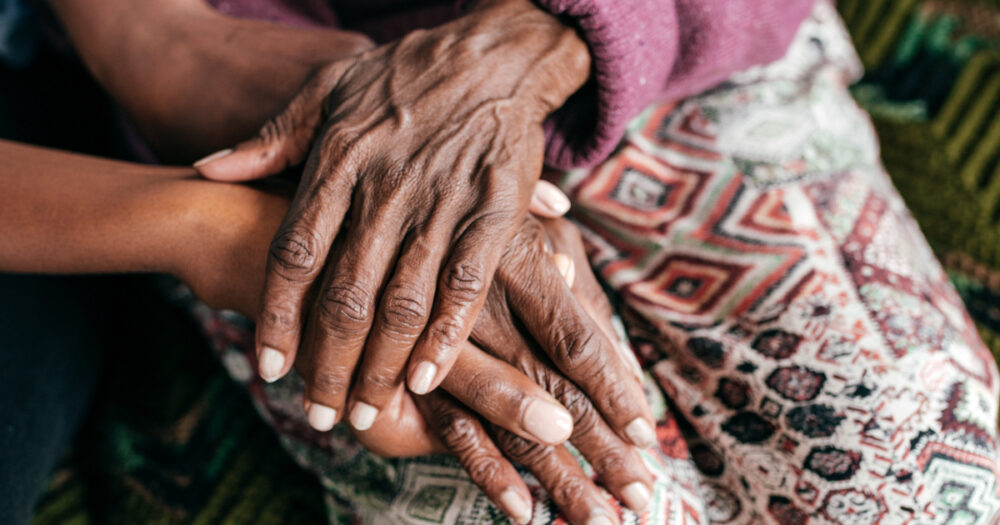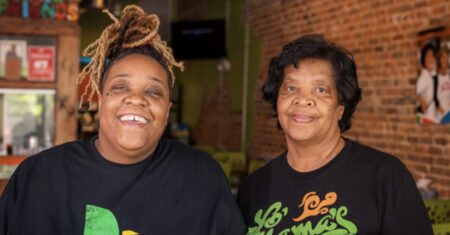Alzheimer’s Foundation of America Offers Information to Help Family Caregivers Keep Their Loved Ones Safe During Dangerous Heat Wave
With heat indexes reaching the mid-90’s and higher in many parts of the country, creating dangerous conditions for millions of Americans during a prolonged heat wave, the Alzheimer’s Foundation of America (AFA) is providing important tips to help caregivers keep their loved ones living with dementia safe.
Watch out for wandering. Wandering is a common and potentially dangerous behavior for individuals with dementia, as they can get lost or become disoriented, and not know how or who to call for help. It’s even more dangerous in extreme heat conditions, where heat stroke (a serious elevation in body temperature that is sparked by exposure to extreme environmental heat or a mixture of heat and humidity) can develop in minutes. There are many reasons why someone with dementia wants to go outdoors. Being outside may provide a feeling of purposefulness or satisfaction; be a response to excessive stimuli, be triggered by the need to get away from noises and people; or is a response to an unmet need (i.e., hunger, thirst, boredom). Reduce the chances of wandering by identifying consistent and sustainable ways to support these experiences in a safe environment: create walking paths around the home with visual cues and stimulating objects, engage the person in simple tasks, or offer engaging activities (i.e., music, crafts, games). Ensuring basic needs are met can also reduce the chances of wandering.
Keep a recent photo and medical information on hand, as well as information about familiar destinations that are currently, or formerly, frequented, that can be shared with emergency responders if the person wanders. This will expedite search and rescue efforts.
Monitor the person’s fluid intake. Alzheimer’s disease and other dementia-related illnesses can affect a person’s ability to know when they are thirsty, thus making it critically important for caregivers to monitor fluid intake and encourage them to drink frequently. Avoid alcohol and caffeinated beverages, as these drinks may contribute to dehydration.
Observe the person for heat stroke warning signs. Dementia-related illnesses can make it harder for a person to detect temperature changes, putting them at greater risk for heat stroke. Watch for warning signs such as excessive sweating, exhaustion, hot, dry, or red skin, muscle cramps, rapid pulse, headaches, dizziness, nausea, or sudden changes in mental status. If the person is exhibiting these warning signs, such actions as resting in an air-conditioned room, removing clothing, applying cold compresses, and drinking fluids can all help cool the body. If the person faints, exhibits excessive confusion or is unconscious, call 911 immediately.
Know where to cool down. Many municipalities will open up air conditioned “cooling centers” so that people who do not have air conditioning can go cool down. These centers can include senior centers, libraries, community centers and other municipal/public buildings. If your person does not have air conditioning, find out if there are cooling centers are nearby.
Plan ahead. Blackouts and other power failures can sometimes occur during heat waves. Make sure that cell phones, tablets, and other electrical devices are fully charged. Flashlights should be easily accessible in case of a power failure. Have the emergency contact numbers for local utility providers, as well as the police and fire departments, readily accessible.
Have a long-distance plan if necessary. If you don’t live near your loved one, arrange for someone nearby to check on them. Inform this contact person about emergency contacts, and where important medical information, such as an insurance card, is kept. Make sure your loved one has plenty of water, and has access to air conditioning or other cooling mechanisms.
Caregivers who have questions or need additional information can contact the AFA Helpline by phone (866-232-8484), text (646-586-5283), or webchat (www.alzfdn.org) to speak with a licensed social worker. The Helpline is available seven days a week.
About Alzheimer’s Foundation of America (AFA)
The Alzheimer’s Foundation of America is a non-profit organization whose mission is to provide support, services and education to individuals, families and caregivers affected by Alzheimer’s disease and related dementias nationwide and to fund research for better treatment and a cure. Its services include a National Toll-Free Helpline (866-232-8484) staffed by licensed social workers, the National Memory Screening Program, educational conferences and materials, and “AFA Partners in Care” dementia care training for healthcare professionals. For more information about AFA, call 866-232-8484, visit www.alzfdn.org, follow us on Twitter or connect with us on Facebook, Instagram or LinkedIn. AFA holds Charity Navigator’s top 4-star rating.







